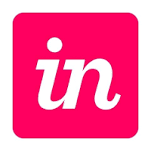How We Launched A Honeymoon Registry For Modern Couples
Hello! Who are you and what business did you start?🔗
Hi, I'm Ollie Rozdarz, a Product Designer living on the Gold Coast, Australia. I'm one of the Co-founders of Hitchd,. You can think of Hitchd as a wishing well, cash fund, and Kickstarter, all rolled into one package. Our goal is to make it super simple for couples to create and fund literally any kind of gift or experience for their adventure of a lifetime.
While COVID has dramatically impacted our industry, the intersection of weddings and travel, today we're making anywhere from $3,000 to $7,000 per month.

What's your backstory and how did you come up with the idea?🔗
For the last three years, I've been working on Hitchd with my co-founder, Isuru. In our day jobs, Isuru works as a Solutions Architect at Segment, while I'm a Senior Product Designer at WordPress. Before our current jobs, we each had various roles for companies such as Microsoft and Accenture, and in a wide range of industries from consulting to insurance to start-ups to nonprofits.
Optimism probably led me to believe that if we built a good enough product, marketing, SEO and PR would take care of themselves, and you definitely hear cases of that happening, but it wasn't the case for us.
Much like a typical Starter Story founders' journey, Hitchd was created to solve our own problem. When I got engaged in 2015, my fiance gave me the responsibility of planning our honeymoon and organizing the wedding registry. We'd recently attended a friend's wedding who used a basic honeymoon registry and loved the idea of being able to ask our guests to fund our activities and experiences instead of receiving traditional gifts.
I began scouring the internet for registries to use that would give us the flexibility to create our own unique experiences while showcasing our trip in a modern and personal way. My search came up short. Although the wedding industry had come a long way since the days of registering for gifts in department stores, the options were seriously limited.
Isuru and I had previously worked together for years, as well as partnering up to work on projects in our free time. After telling him about my current predicament, we decided there was only one thing to do: build our own registry.
Take us through the process of designing, prototyping, and manufacturing your first product.🔗
When setting out to build Hitchd, we began by speaking to friends, family, and married acquaintances to try and understand more about their own honeymoon experience. Luckily, we also had some big competitors in the space that we reviewed, which helped us benchmark our ideas against what we hoped to build.
Because the registry needed to be turned around quickly for my wedding, we decided on what would be needed for an MVP and set aside anything time-consuming for later. As we started to build our prototype, we quickly discovered what was working and what wasn't, then iterated. This fast iteration process has been a valuable method that later evolved into how we measure and improve how couples use the product today.
The initial prototype of Hitchd took around four months to design, build, and test, although there was no ability to do anything more than select gifts and receive guest contributions via Stripe integration.

Describe the process of launching the business.🔗
Once we launched Hitchd and the wedding invitations were sent, it wasn't too long before the first guest contributions started rolling in. The special aspect of Hitchd as founders is its inherent virality and the fact that if a couple decides to use it, there will be anywhere from 50 to 150 eyes on the product. If a guest has a positive experience, they're likely to recommend it to another engaged friend of theirs. On our wedding day, the feedback from guests was overwhelmingly positive, so we knew that what we had built was on the right track.
If we could turn back the clock and do something differently it would be to market the product earlier. We spent way too long trying to perfect Hitchd before we released it, and didn't put a big emphasis on having things like a great marketing website or blog.
Using Hitchd, not only did my wife and I manage to fund our entire honeymoon, but more importantly, it meant we didn't go into financial debt. In what is typically one of the most expensive times of your life, this opened our eyes as the most defining factor as to why someone would want to choose a honeymoon registry over receiving traditional gifts.
For the following year after we returned from the trip, Isuru and I spent our free time productizing Hitchd, eventually releasing our beta to the public in 2017.

Since launch, what has worked to attract and retain customers?🔗
We started running Facebook Ads as soon as Hitchd was released to beta. The ability to target engaged couples who have similar interests to Hitchd was really valuable in acquiring early users and to start learning how they'd use the product. Over the past year, we've also experimented with running different types of ads on Instagram, but they tend to be more expensive and less effective for us.
We're constantly testing new channels and methods of acquiring new users, most recently with Google Ads and paid referrals, but our major focus for 2020 has been organic growth. Hitchd's organic traffic has finally started to increase, mainly due to some technical SEO optimization (which we monitor using Lighthouse) and getting lucky with Google's latest algorithm changes.

How are you doing today and what does the future look like?🔗
Since Hitchd is bootstrapped, we decided to start charging from day one.
As part of our response to COVID, we recently changed our pricing model from a transactional service fee to a one-time payment.
We decided to pivot because much like companies such as Airbnb or Kickstarter, who charge a service fee per transaction, we made money every time a guest contributed towards a gift. Unlike a typical SaaS model, our returns usually came later (three months on average) since the time between a couple creating their registry and their wedding date can range anywhere from weeks to over a year. Since COVID halted weddings to a stop, we pivoted to a model that would allow us to be paid upfront and was actually much cheaper for the couple in the long run.
To date, we’ve helped grow our revenue by investing time back into SEO and focusing on removing bottlenecks from our marketing funnel and core user journey. In the coming months, we also plan to start testing variances of our service fee, and repositioning it in our marketing material, to see if that will positively impact sign-ups and overall conversions.
We've got a healthy roadmap for 2020-2021 and our focus, as always, is to constantly improve the experience for our users. For us, it's about making sure we have the time to implement our plans while still maintaining momentum and growth, so we've partnered with some external experts to ensure we're equipped to take on these challenges.
So far this year we've expanded Hitchd to serve users in more countries, as well as releasing some bigger features which have been in the works for a long time. With the honeymoon registry market becoming more saturated, we plan to continue building Hitchd towards providing the best holistic experience possible for both couples and their guests.

Through starting the business, have you learned anything particularly helpful or advantageous?🔗
One of our biggest challenges was stepping out of our core skill sets and deep-diving into areas we were unfamiliar with: things like Marketing, SEO, and PR. Optimism probably led me to believe that if we built a good enough product, all of those areas would take care of themselves, and you definitely hear cases of that happening, but it wasn't the case for us.
Perseverance over time has been the other big factor in building Hitchd. Just like starting any kind of business, there are extreme highs and lows, especially when you're rapidly learning and trying to adapt on the fly.
If we could turn back the clock and do something differently it would be to market the product earlier. We spent way too long trying to perfect Hitchd before we released it, and didn't put a big emphasis on having things like a great marketing website or blog. The earlier you can generate traffic to your site, the more people you can start to learn from, and that's vital to understanding whether what you built is actually working.
Time, experience, and battle scars have been a huge factor in our success so far. Hitchd is the second project we've launched together, the first being a Bitcoin marketplace (RIP) a long time before Bitcoin hit the mainstream. Sooner or later you develop a gut feeling about your decisions and learn to trust your instincts.

What platform/tools do you use for your business?🔗
We've learned to simplify our collaboration by using tools such as Trello, which is a lightweight way to manage our tasks and roadmap, while design tools such as Figma and Invision let us quickly prototype new ideas and features before we move to code.
We're both big believers in doing one percent extra every day to benefit from compound effects (we both read Atomic habits by James Clear) and since implementing those rules we've noticed a positive difference in output. For me as a designer, I could easily spend all of my time polishing every pixel on Hitchd, but I've slowly learned to pull myself away and to ship earlier and more often.
Hitchd was originally built using ASP.NET and MVC since we were familiar with it and it reduced the time to create our MVP. We also took advantage of Azure and Azure SQL because we received startup credits which were vital for us to be able to move fast at a low cost.
We quickly discovered that for Hitchd to become a global product that performed consistently, we’d need to switch to a framework that was easier to manage and more financially scalable.
We eventually rewrote Hitchd using Angular and NodeJS on the Front-end and Firebase (specifically Firestore) on the Back-end. We know Angular isn’t the trendiest language, but it works really well for us because we generally work on separate parts of the application and rarely run into merge conflicts. If we were to rewrite Hitchd today we’d probably use React, but since our users would prefer new features over a new framework, we’ll wait until we have to.
Using Firestore gives us a range of features without an API (although we still use an API for critical data) thanks to their security rules. We highly recommend it to other members of Starter Story as it keeps your prototype code as close as possible to production code.
Migrating our existing userbase who already had established registries was tricky, but we made some hard calls early to ensure we could provide them with the best experience when the transition happened.
What have been the most influential books, podcasts, or other resources?🔗
We're both big believers in doing 1% extra every day to benefit from compound effects (we both read Atomic habits by James Clear) and since implementing those rules we've noticed a positive difference in output. For me as a designer, I could easily spend all of my time polishing every pixel on Hitchd, but I've slowly learned to pull myself away and to ship earlier and more often.
Advice for other entrepreneurs who want to get started or are just starting out?🔗
Our advice is to never give up on your idea and always try to remain positive. There are so many ups and downs on the journey to creating a successful product (whatever success means to you), it's important to just ride the wave of emotions.
Lastly, try not to overthink your decisions because it's rare to get something right the first time. We found success in using tools like Fullstory, which give us a tight feedback loop to quickly iterate when we see decisions we made not going to plan.
There are hundreds of great tools available, you just need to find what is right for you at the right stage of your journey.

Where can we go to learn more?🔗
If you're interested in using Hitchd for your own honeymoon registry, you can find us at hitchd.com. Also, check out our blog for tips and interesting articles.
Reach out to say hello at hello@hitchd.com, or find us on Twitter as @rozdarz and @fonsekaisuru.
We'll be happy to answer questions in the comments below!

Download the report and join our email newsletter packed with business ideas and money-making opportunities, backed by real-life case studies.

Download the report and join our email newsletter packed with business ideas and money-making opportunities, backed by real-life case studies.

Download the report and join our email newsletter packed with business ideas and money-making opportunities, backed by real-life case studies.

Download the report and join our email newsletter packed with business ideas and money-making opportunities, backed by real-life case studies.

Download the report and join our email newsletter packed with business ideas and money-making opportunities, backed by real-life case studies.

Download the report and join our email newsletter packed with business ideas and money-making opportunities, backed by real-life case studies.

Download the report and join our email newsletter packed with business ideas and money-making opportunities, backed by real-life case studies.

Download the report and join our email newsletter packed with business ideas and money-making opportunities, backed by real-life case studies.










